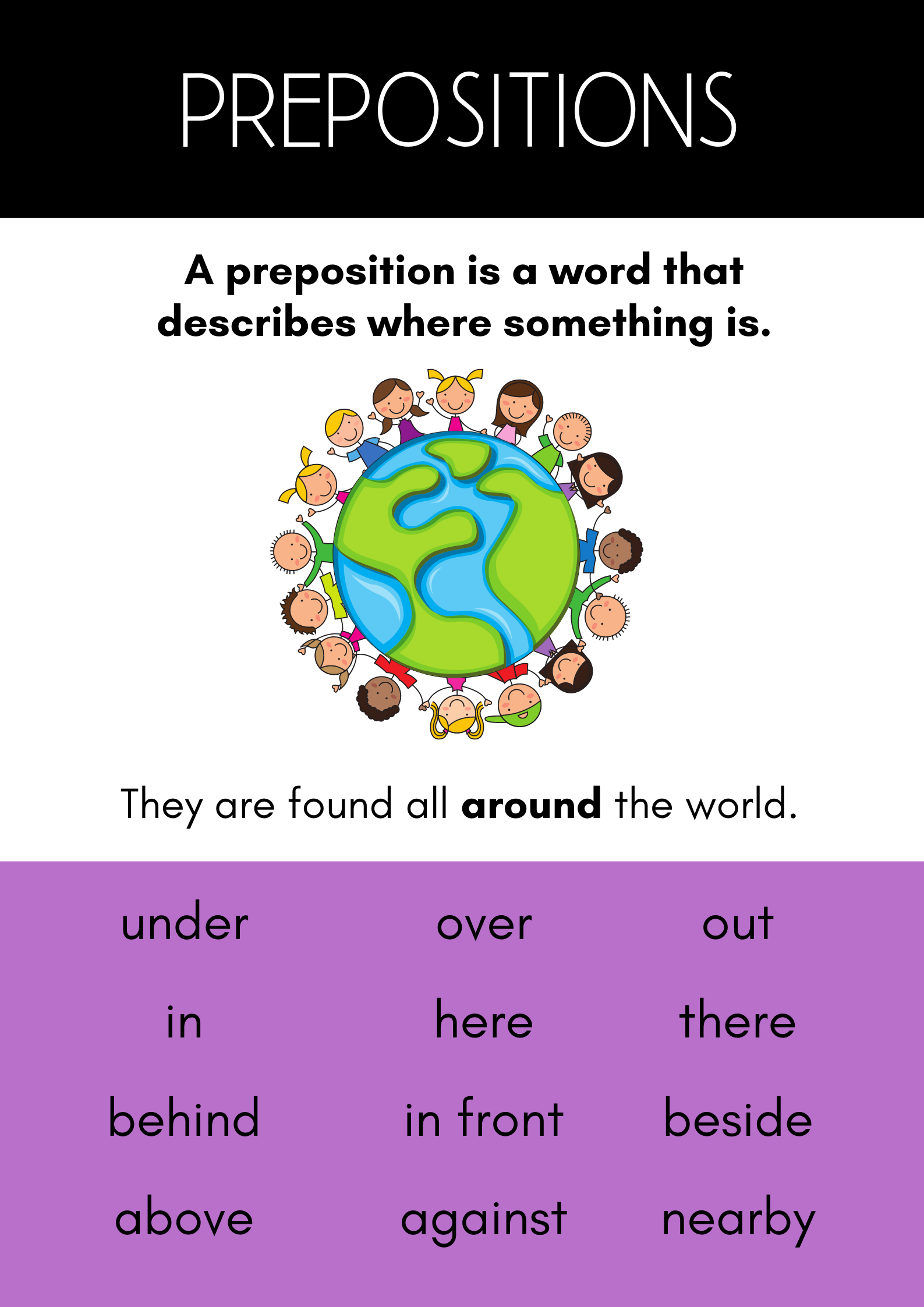
Prepositions
Prepositions help explain the relationship between things. This is important since English lacks some of the cases used in other languages like Russian.
 As their name implies, prepositions come before... and they must be followed by a noun (for example, "Children are found around the world.") In a question, in which usual sentence structure is inverted, a preposition could come at the end if the interrogative pronoun is its object.
Prepositions can include prepositions of time, space, and movement.
As their name implies, prepositions come before... and they must be followed by a noun (for example, "Children are found around the world.") In a question, in which usual sentence structure is inverted, a preposition could come at the end if the interrogative pronoun is its object.
Prepositions can include prepositions of time, space, and movement.
Get used to using prepositions as a way of conveying meaning.
I am off to New York ......... I am going to New York.
I am in New York ......... I am now in New York.
Many verbs and adjectives are used with certain prepositions, and not others. For example: Protest against, or look for.
Often the preposition is "standing in" for or pointing to a noun which is not mentioned explicitly. Take for example, the title of the U2 song "I Still Haven't Found What I am Looking For". The thing being looked for is not named, but is implied by context. "For" is a preposition which goes with "look"
Just like verbs, prepositions (like beTWEEN) are mostly stressed on the second syllable.
While traditional grammar rules once frowned upon ending questions with prepositions (the so-called terminal preposition), this rule has largely fallen out of favor, especially in everyday speech. That said, ending a statement with a preposition sounds odd. That is because, as previously mentioned, prepositions usually go before a noun, not afterwards.
Phrasal verbs and prepositional verbs are both multi-word verbs in English, but they differ in structure, meaning, and how the added words function within the verb phrase.
1. Phrasal Verbs
Definition: A phrasal verb is a combination of a verb + particle (often an adverb, like up, off, in). The combination creates a new meaning that is usually idiomatic and cannot be inferred from the individual words.
Examples:
"give up" (to quit)
"look after" (to care for)
Characteristics:
The meaning is often non-literal.
Some phrasal verbs are separable: “She turned off the lights” / “She turned the lights off.”
Others are inseparable: “She ran into her old friend” (not “She ran her old friend into”).
See Prepositional Phrases.
EXERCISES
BASIC PREPOSITIONS: View on Google Documents.




Can't open random/book_lesson
No files in directory to display.
Can't open random/copyright
No files in directory to display.
Can't open random/donations
No files in directory to display.
|
About Me | AltLanguages Home | Architecture | Australian English | Book a Lesson with Me | Dialects | Dictionaries | Find a Teaching Job | Grammar | Home of the English Language Guide | IELTS | Job Interview Skills | Lesson Types | Lexicon | Listening | New Economy | Malaysia | Media | Motivation | My Vocabulary | Pronunciation | Resources | See My Online Whiteboard | Speaking | Tests | Thinking | Writing
 fine print | privacy policy
fine print | privacy policy
|






